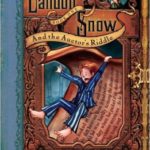Messin’ With Time
Here in the United States, most of us will be altering time this coming weekend (November 3, to be exact) because Daylight Savings Time will come to an end. Of course we haven’t actually saved any daylight, nor are we alerting time in any ultimate sense. Every day will still have twenty-four hours; every hour, sixty minutes; every minute, sixty seconds. But we will, of course, change time in the sense that we will change our clocks by “falling back” an hour. Five o’clock will become four, ten o’clock will become nine, and so forth.
In one sense, I’m glad for the change because I’m tired of waking up and getting up while it’s dark outside. For those people who have to start their day at some early morning hour when the rest of us are fast asleep, the change won’t affect them in the morning. I mean, it’s dark at four whether we are on Day Light Savings Time or not. But for me, where I live, I’m now eating breakfast just as the sun is starting to peek over the horizon. Which means I’ve been up, in the dark, for hours already.
In another sense, I hate this messing with time that we do. It throws my sleep pattern off. I get hungry at the wrong times, I’m eating just because the clock tells me it’s lunch, and so on. What’s worse, the whole thing changes back in five short months. And what’s worse still, from my perspective, is that the government decided to add this extra month to Day Light Savings Time because people are more inclined to shop when it is light. I guess they figure we’ll shop before Christmas no matter what, so it’s safe to change the time for a little while at least. But me? I don’t think shopping is a good reason to mess with time.Beyond all my complaints about the time change, I find time an interesting topic, a part of world building, actually, in speculative stories.
I just finished a fantasy in which several individuals passed through a tunnel into another land. Yes, this was a portal fantasy. As it turns out, the individual who went through the tunnel some time later (weeks, maybe months) arrived in the alternate world before the person who went through the tunnel first.
Narnia famously gave readers this “time is different” element of fantasy when Lucy Pevensie famously spent hours and hours in Narnia, only to return to this world moments after she left. That’s been a fairly common element in these types of fantasies, though I don’t recall one in which time was so altered as it was in the book I just read.
Other types of fantasies, such as Lord of the Rings, must develop their own time system, usually only pertinent when recounting the past. I haven’t read The Silmarillion by J. R. R. Tolkien, edited and published posthumously by his son, Christopher (and unlikely to become a movie, which suits some just fine), but I understand that the book delves into the history of Middle-earth, dealing with, among other things, the First Age, the Second Age, and the Third Age. These ages, of course, are the author’s fanciful dealing with the past. In fact, all of Middle-earth is supposedly about a time before our time, in some ways “explaining” why we do not have elves and dwarfs and wizards in our world today.
Then there are time travel stories, which are a type of speculative fiction we don’t see too much in contemporary literature, at least not since Back To The Future.The most notable series I read was Stephen Lawhead’s Bright Empires. He used an interesting device called ley lines. When the characters passed from one reality to another, they were actually going into another world, like ours in every respect, with a history like ours. But they not only traveled to other places in the other world, they also traveled to other times in the other world. Confused yet? It actually made a lot of sense and was an interesting twist on the time travel novel.
Even science fiction must deal with time. At least stories that are set in space or that involve space travel, must, if only by developing warp engines or dilithima crystals or some other innovation that allows spaceships to reach a destination within the characters’ lifetimes, speeding through light years as if they are but hours. Some stories also must deal with longer days on some planets, or telling time on spaceships that aren’t in sync with one planet or the other.
All in all, time is a serious function of speculative literature. It helps build the world and make it into a believable other place. Consequently, in novels, messin’ with time is not only forgivable, it may be desirable.
What speculative stories have you read (or have you written) in which time must be altered in some way? How well did the author handle the time elements? Any of those books you’d like to recommend?












































I don’t really mind Daylight Savings Time except for the slight worry that I’ll forget about the time change and thus end up being too late or early for something.
Further down the road, there’s a story I’ll write that involves time travel. And it will get very long and elaborate and deal heavily with psychology and the toll every event takes on the characters. With my other stories…dealing with all the technicalities of time zones and such can be a pain, so I don’t usually put the chars in a position where they need to worry about it. A lot of the cultures I write about are more ancient or at least low tech, so that helps. Usually, it’s enough to say ‘the hunt lasted the entire day’. Even in scifi, the author doesn’t always have to say how long a day on that planet lasts. And in ancient cultures, it’s usually enough to say ‘be there at dawn’ instead of ‘be there at 6 am’.
My fave time travel story is probably Steins Gate. It’s got a very interesting take on time travel, and although it almost starts out in a slice of life manner, they’re edging closer and closer to certain discoveries the whole time…which suddenly explodes into very high stakes part way through the story.
One of the best things about time travel stories is that they’re a great way to explore why every event can matter, raise questions about whether or not we should want to change our pasts, and in some ways provide an opportunity to fantasize about second chances.
For my “day job” I work from mid-afternoon to late evening and my days off are Tuesday and Wednesday. I’ve also worked the graveyard shift.
Nothing skews your perception of time quite like this. You don’t hear as much about circadian rhythm these days, but the cycle of day and night predates the formation of the sun and moon in the biblical account and is by no means arbitrary.
I play with this in my Drift series; it’s a generation ship where the lights are always on, and religious communities maintain independent clocks and calendars.